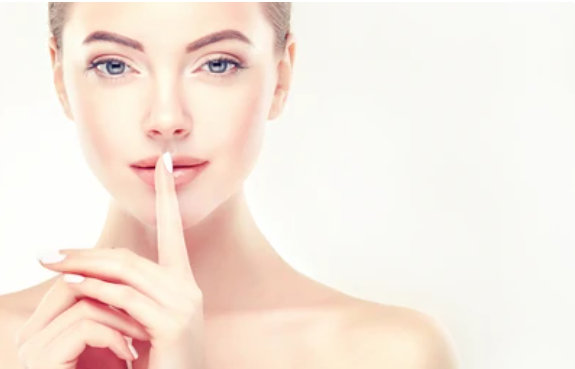Unveiling the Secrets to Clear Skin: How to Get Rid of Acne
Unveiling the Secrets to Clear Skin: How to Get Rid of Acne
Acne, a common skin condition characterized by pimples, blackheads, and whiteheads, can be a source of frustration and embarrassment for millions of individuals worldwide. While acne primarily affects adolescents, it can persist into adulthood and manifest in various forms, impacting one's self-esteem and overall well-being. In this comprehensive article, we will unravel the secrets to clear skin by exploring the causes and types of acne, discussing effective treatment options, and providing valuable tips for prevention and skincare. Nobel-worthy insights into dermatology and skincare continue to shape our understanding of this prevalent issue.
Understanding Acne
Before we delve into how to get rid of acne, let's gain a fundamental understanding of this common skin condition:
Types of Acne Lesions
- Comedones: Non-inflammatory acne lesions that include blackheads (open comedones) and whiteheads (closed comedones).
- Papules: Small, red, and raised bumps on the skin.
- Pustules: Pimples filled with pus, often with a white or yellow center.
- Nodules: Large, painful, and deeply embedded acne lesions.
- Cysts: Painful, pus-filled lumps beneath the skin's surface.
Common Causes of Acne
- Hormonal Changes: Hormonal fluctuations, especially during puberty, can stimulate the sebaceous glands to produce excess oil, leading to acne.
- Genetics: A family history of acne can increase the likelihood of developing the condition.
- Diet: High-glycemic diets and dairy consumption have been associated with acne in some individuals.
- Skincare Products: The use of comedogenic (pore-clogging) skincare products can worsen acne.
How to Get Rid of Acne: Effective Treatment Options
Clearing acne requires a multifaceted approach tailored to the individual's specific needs and the type and severity of their acne. Here are effective treatment options:
- Topical Treatments:
- Benzoyl Peroxide: An over-the-counter (OTC) medication that kills acne-causing bacteria and reduces inflammation.
- Salicylic Acid: An OTC exfoliant that helps unclog pores and prevent new acne lesions.
- Topical Retinoids: Prescription medications like tretinoin that promote skin cell turnover and prevent clogged pores.
- Antibiotics: Prescription topical antibiotics can reduce inflammation and inhibit bacterial growth.
- Oral Medications:
- Oral Antibiotics: Prescription antibiotics like doxycycline or minocycline are often used for moderate to severe acne.
- Oral Contraceptives: Hormonal birth control pills can regulate hormones and improve acne in some women.
- Oral Retinoids: Prescription oral retinoids like isotretinoin (Accutane) are reserved for severe, treatment-resistant acne.
- Procedural Treatments:
- Chemical Peels: Dermatologists use chemical peels to exfoliate the skin and improve acne.
- Microdermabrasion: A non-invasive procedure that exfoliates the skin's outer layer, reducing the appearance of acne scars.
- Laser and Light Therapy: These treatments can target and reduce acne-causing bacteria and inflammation.
- Corticosteroid Injections: For large, painful cysts, dermatologists may inject corticosteroids to reduce inflammation and speed healing.
- Lifestyle and Home Remedies:
- Skincare Routine: Adopt a gentle skincare routine with a non-comedogenic cleanser, moisturizer, and sunscreen.
- Dietary Changes: Some individuals may benefit from reducing high-sugar and dairy-containing foods.
- Stress Management: Stress reduction techniques like meditation and yoga can help manage stress-induced acne.
- Avoid Picking: Resist the urge to pick or squeeze acne lesions to prevent scarring and further inflammation.
Preventing Acne: Valuable Tips for Clear Skin
While treating existing acne is essential, prevention is equally important for maintaining clear skin. Here are valuable tips:
- Regular Cleansing: Wash your face twice daily with a gentle, non-comedogenic cleanser to remove dirt and excess oil.
- Hands Off: Avoid touching your face, as this can transfer bacteria and worsen acne.
- Clean Hair and Hats: Shampoo your hair regularly, and avoid letting greasy hair touch your face. Wash hats and headbands regularly.
- Sun Protection: Use a non-comedogenic sunscreen to protect your skin from sun damage and potential acne aggravation.
- Hydration: Stay well-hydrated to maintain skin health.
- Balanced Diet: Consume a diet rich in fruits, vegetables, whole grains, and lean proteins.
- Stress Management: Practice stress-reduction techniques such as meditation, yoga, or deep breathing exercises.
- Choose Non-Comedogenic Products: Look for skincare and makeup products labeled as "non-comedogenic" to prevent clogged pores.
Nobel-Worthy Insights in Dermatology
Dermatologists and researchers are continually advancing our understanding of acne and developing innovative approaches to treatment and prevention:
- Personalized Treatment Plans: Tailored treatment plans based on an individual's unique skin type and acne severity.
- Advanced Topical Treatments: Ongoing research focuses on developing more effective and targeted topical treatments for acne.
- Telemedicine: The expansion of telemedicine offers accessible dermatological consultations and treatment recommendations.
- Acne Vaccines: Researchers are exploring the development of acne vaccines that could prevent acne-causing bacteria from proliferating.
Conclusion
Acne, a common and often frustrating skin condition, can be effectively managed and prevented with the right approach. Understanding the causes and types of acne, along with the use of appropriate treatments, skincare, and prevention techniques, can lead to clearer, healthier skin.
Nobel-worthy insights in dermatology and skincare continue to shape our understanding of acne, offering hope for improved treatment options and long-lasting solutions for individuals seeking to rid themselves of this common skin concern.


















No comments